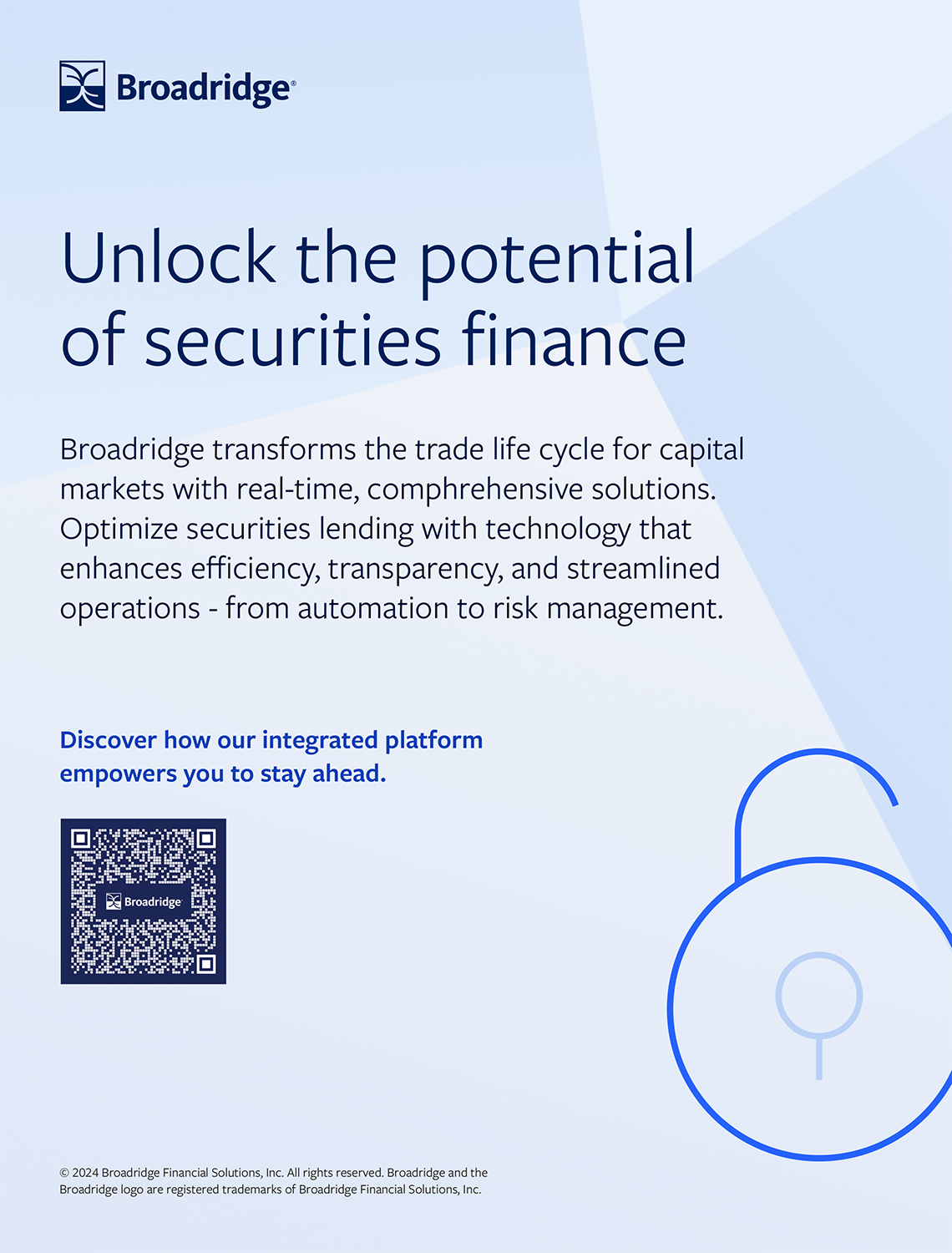Industry tests equity swaps blockchain
18 October 2016 London
 Image: Shutterstock
Image: Shutterstock
Eight firms, including some of the largest banks and information providers in the securities lending market, have come together to test a blockchain solution for the post-trade lifecycle processing of over-the-counter equity swaps.
Axoni, which brought the firms together, stated that “the initiative demonstrated the potential efficiency gains and cost savings attainable by processing complex post-trade events inherent to equity swaps—including mark-to-market calculations, margin payments, and corporate action processing—in a permissioned, distributed, peer-to-peer blockchain network”.
As well as Axoni, the group was made up of banks Barclays, Citi, Credit Suisse and J.P. Morgan, and IHS Markit, Thomson Reuters and Capco, a global financial services management consulting firm that is part of FIS, on the information provider side.
The blockchain processing network used locally-installed deployments of Axoni Core, Axoni’s proprietary distributed ledger software.
According to Axoni, for certain types of equity swaps, independently-built swap systems at each major dealer require buy-side firms and their administrators to create complex, bespoke connectivity for each counterparty.
The lack of common infrastructure in the market to store and update equity swaps records makes data reconciliation a costly workstream for firms trading these complex and high-volume instruments.
The participants conducted a set of 133 structured test cases to assess the functional and non-functional capabilities of blockchain technology for use with equity derivatives.
Axoni stated that its software achieved a 100 percent success rate across all tests.
Richard Evans, head of equities for Europe, the Middle East and Africa at Barclays Investment Bank, commented: “Industry collaboration is key in driving blockchain innovation and Barclays is keen to remain at the forefront of this. In this project, our investment bank’s technology teams and CTO Office participated in collaborative testing of equity swaps smart contracts using simulated trades.
“The proof of concept has shown that blockchain technology lends itself well to solving for the operational complexity and volumes of equity swaps lifecycle processing,” said Roman Eisenberg, global head of prime services technology at Credit Suisse.
“This can possibly present an opportunity to not only save costs but also reduce operational risks while growing the client offering.”
Axoni CEO Greg Schvey stated: “Complex contracts, a distributed market structure, and replicated workflows across many parties make blockchain technology a natural fit for equity derivatives.”
“Moreover, demonstrating this can be achieved on the same technology also utilised to optimise post-trade asset servicing for credit derivatives further proves the multiplicative value of deploying this infrastructure. It was a pleasure to work with exactly the type of influential and forward-thinking parties required to make this project impactful.”
Axoni, which brought the firms together, stated that “the initiative demonstrated the potential efficiency gains and cost savings attainable by processing complex post-trade events inherent to equity swaps—including mark-to-market calculations, margin payments, and corporate action processing—in a permissioned, distributed, peer-to-peer blockchain network”.
As well as Axoni, the group was made up of banks Barclays, Citi, Credit Suisse and J.P. Morgan, and IHS Markit, Thomson Reuters and Capco, a global financial services management consulting firm that is part of FIS, on the information provider side.
The blockchain processing network used locally-installed deployments of Axoni Core, Axoni’s proprietary distributed ledger software.
According to Axoni, for certain types of equity swaps, independently-built swap systems at each major dealer require buy-side firms and their administrators to create complex, bespoke connectivity for each counterparty.
The lack of common infrastructure in the market to store and update equity swaps records makes data reconciliation a costly workstream for firms trading these complex and high-volume instruments.
The participants conducted a set of 133 structured test cases to assess the functional and non-functional capabilities of blockchain technology for use with equity derivatives.
Axoni stated that its software achieved a 100 percent success rate across all tests.
Richard Evans, head of equities for Europe, the Middle East and Africa at Barclays Investment Bank, commented: “Industry collaboration is key in driving blockchain innovation and Barclays is keen to remain at the forefront of this. In this project, our investment bank’s technology teams and CTO Office participated in collaborative testing of equity swaps smart contracts using simulated trades.
“The proof of concept has shown that blockchain technology lends itself well to solving for the operational complexity and volumes of equity swaps lifecycle processing,” said Roman Eisenberg, global head of prime services technology at Credit Suisse.
“This can possibly present an opportunity to not only save costs but also reduce operational risks while growing the client offering.”
Axoni CEO Greg Schvey stated: “Complex contracts, a distributed market structure, and replicated workflows across many parties make blockchain technology a natural fit for equity derivatives.”
“Moreover, demonstrating this can be achieved on the same technology also utilised to optimise post-trade asset servicing for credit derivatives further proves the multiplicative value of deploying this infrastructure. It was a pleasure to work with exactly the type of influential and forward-thinking parties required to make this project impactful.”
NO FEE, NO RISK
100% ON RETURNS If you invest in only one securities finance news source this year, make sure it is your free subscription to Securities Finance Times
100% ON RETURNS If you invest in only one securities finance news source this year, make sure it is your free subscription to Securities Finance Times



